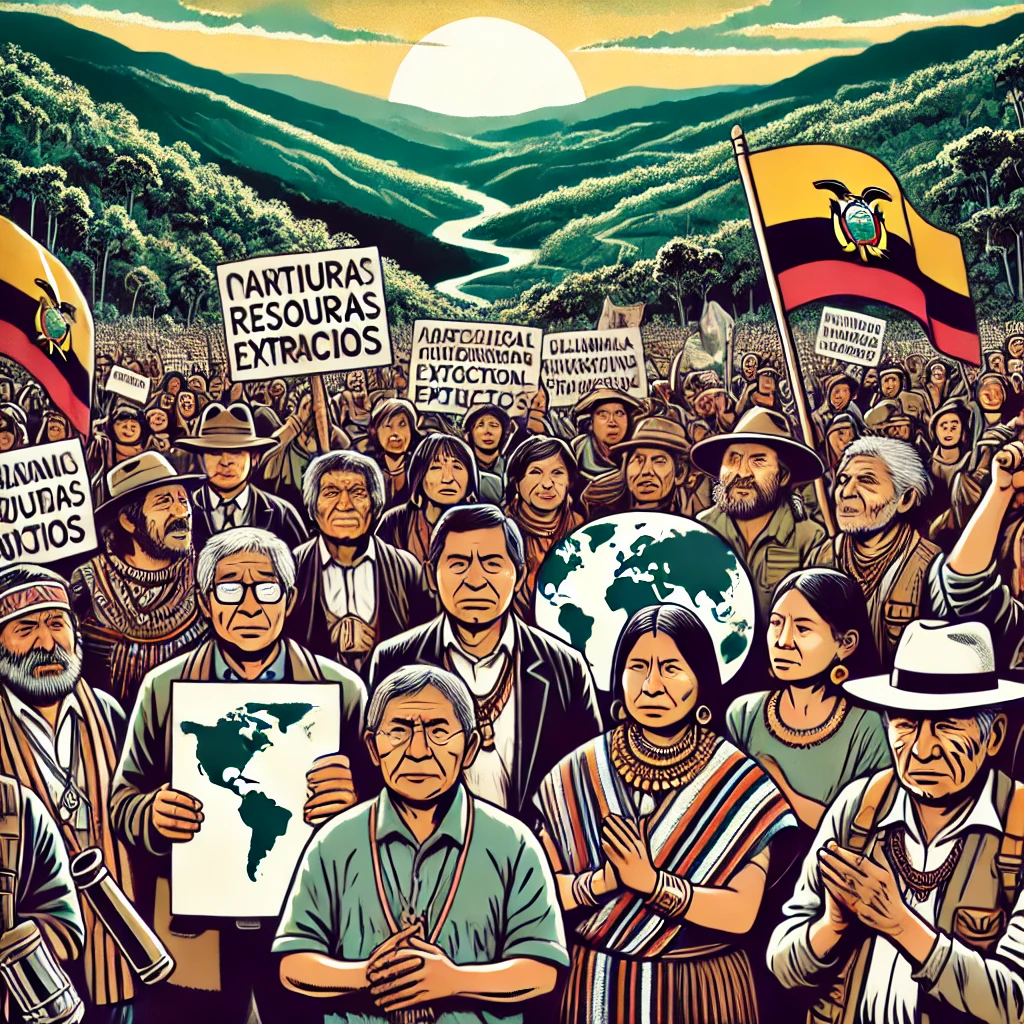Indigenous Protests Intensify in Ecuador Over Natural Resource Extraction
Quito, Ecuador - August 9, 2024 - Indigenous leaders in Ecuador have ramped up their protests against government-backed natural resource extraction projects, which they claim violate their territorial rights and cause significant environmental damage. The protests, which have been ongoing for several months, gained new momentum following a recent court ruling in favor of the Kitu Kara community, recognizing the rights of nature and ordering the suspension of a mining operation in their territory.
Court Ruling: A Victory for Indigenous Rights
The court's decision marks a significant victory for the Kitu Kara community and other indigenous groups in Ecuador. The ruling recognized the rights of nature—a legal principle enshrined in Ecuador's constitution since 2008—and found that the proposed mining activities would irreparably harm the local environment and infringe on the community's territorial rights. This legal recognition of environmental protection as a fundamental right sets a crucial precedent for future cases involving indigenous lands and resource extraction projects.

According to Global Issues, the ruling has been hailed by environmental and human rights activists as a landmark decision. It underscores the importance of protecting indigenous lands from exploitation and ensuring that economic development does not come at the expense of environmental sustainability and community well-being.
Ongoing Tensions and National Debate
Despite the court's ruling, tensions remain high in Ecuador as the government continues to push for natural resource extraction as a means of economic growth. Indigenous leaders argue that these projects are often approved without proper consultation and violate international agreements, such as the International Labour Organization's Convention 169, which mandates that indigenous peoples must be consulted before any project affecting their lands is undertaken.
The protests have drawn attention to the broader issue of how natural resources are managed in Ecuador. While the government sees these projects as vital for economic development, indigenous communities see them as a direct threat to their way of life. The ongoing debate reflects the complex balance between economic growth and environmental protection, a challenge faced by many countries rich in natural resources.
The protests have also highlighted the persistent struggles of indigenous communities in Ecuador. For decades, these groups have fought to protect their lands and maintain their cultural heritage in the face of external pressures. The recent court ruling may offer some respite, but many fear that without significant changes in government policy, the cycle of conflict will continue.
The Broader Implications for Latin America
Ecuador's situation is emblematic of a broader trend across Latin America, where indigenous communities are increasingly standing up against large-scale development projects. From the Amazon rainforest to the Andes, indigenous groups are demanding that their rights be respected and that the environment be protected from exploitation.
The success of the Kitu Kara community could inspire similar movements in other parts of the continent, potentially leading to more legal victories for indigenous rights and environmental protection. However, it also raises questions about how governments in the region will balance the need for economic development with the rights of indigenous peoples and the need to preserve natural ecosystems.
For more information on the protests in Ecuador and the implications of the recent court ruling, visit Global Issues and Inter Press Service.
Conclusion
The protests in Ecuador underscore the ongoing conflict between economic development and the protection of indigenous rights and the environment. While the recent court ruling in favor of the Kitu Kara community is a significant victory, it also highlights the challenges that lie ahead. As the government continues to promote resource extraction projects, the struggle for indigenous rights and environmental protection is likely to remain a central issue in Ecuador's political landscape. The outcome of this struggle will not only shape the future of Ecuador but could also set a precedent for other nations facing similar challenges.
